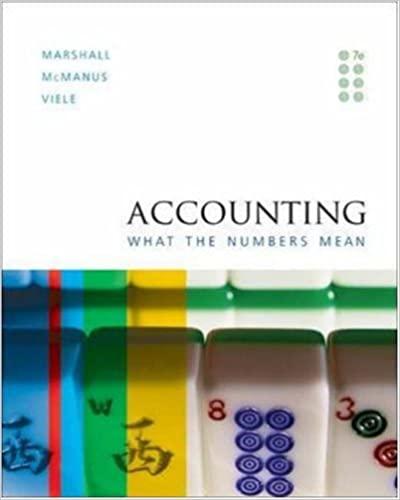Question
Question: The stockholders of Nathans have authorized the company to issue 30,000,000 shares of company stock but only a little over 9,000,000 have actually been
Question: The stockholders of Nathans have authorized the company to issue 30,000,000 shares of company stock but only a little over 9,000,000 have actually been issued. Yet, there are only a little more than 4,000,000 shares outstanding in the hands of stockholders. Nathans has not canceled any shares of stock.
The balance sheet provides information about the companys assets as well as who owns those assets. Assets can be thought of as your stuff. Its the things you own that have some value. Companies can sell the assets (inventory), or they can use fixed assets to make more stuff. Some of the assets cant be seen or touched like copyrights, patents, franchises, etc. And dont forget what is arguably the most important asset. Cash! The reason cash is so important is that it can be used to buy other assets, pay bills, or even return money to the stockholders. Cash is an important part of this module because the ability of a company to earn and manage cash is a critical element in growing and avoiding bankruptcy. Sometimes companies get into the unfortunate situation where it is expending more cash than it is bringing in from operations. A common term for this is cash burn. Managers carefully measure their cash burn rate so that appropriate planning can be done regarding capital expenditures (CAPEX) and debt planning.
The other side of the balance sheet list the liabilities and equity, that is, who owns this stuff. Some of the stuff is owned by people outside the company (liabilities), and some of it is owned by the stockholders of the company (stockholders equity, or capital). Consider your home. Lets say you paid $100,000 for the home. Accountants list property, plant, and equipment such as this at cost (a serious weakness in the financial statements). So, the home is your asset - $100,000. Now who owns it? The bank owns some of it because you have a mortgage. Lets say your mortgage is $80,000, so liabilities are $80,000. So what is your equity? Its the residual, that is the difference between $100,000 and $80,000 or $20,000.
Liabilities then are amounts owed to creditors such as banks, bond holders, suppliers, payroll, etc. Liabilities can also be environmental cleanup costs, or taxes owed to the government. Liabilities also include obligations to provide goods or services to customers in the future such as when Nathans sells a gift card. They have the gift card purchasers money, but they havent provided the goods, so they owe the purchaser. If you buy an airplane ticket, then the airline owes you a trip that it hasnt provided.
Shareholders equity (sometimes called capital or net worth) is, as we said above, the money left if a company sold all of its assets and paid off its liabilities. This leftover money belongs to the stockholders, or the owners, of the company.
Step by Step Solution
There are 3 Steps involved in it
Step: 1

Get Instant Access to Expert-Tailored Solutions
See step-by-step solutions with expert insights and AI powered tools for academic success
Step: 2

Step: 3

Ace Your Homework with AI
Get the answers you need in no time with our AI-driven, step-by-step assistance
Get Started


